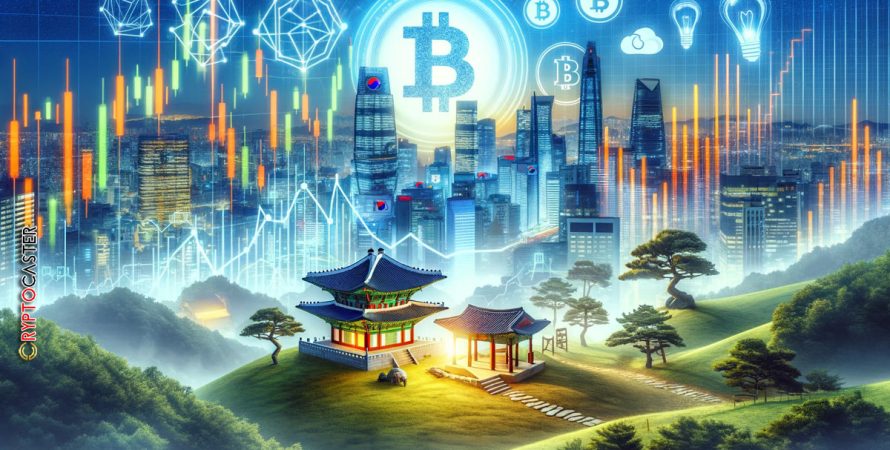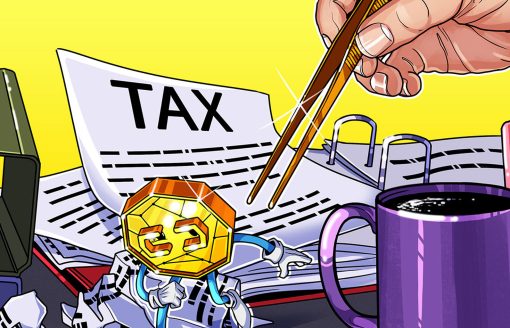Observers of the local market noted that the so-called “Kimchi premium” has recently passed the two-year high point.
- The term “Kimchi premium” describes the discrepancy between Bitcoin prices on Korean exchanges and international markets. In South Korea, bitcoin is presently trading at a premium of 10%.
- Buying bitcoin on a global exchange and selling it on a Korean exchange for a risk-free profit in Korean won is known as arbitrage, and it was made popular by Sam Bankman-Fried.
- Because of the stringent capital controls in South Korea, it is challenging to pocket the actual gains.
Stay in the know on crypto by frequently visiting Crypto News Today
With bitcoin prices commanding an average 10% premium in South Korea, an advantageous but operationally challenging arbitrage trade has returned in popularity.
Bitcoin is trading slightly over $66,000 on the majority of international exchanges as of this morning (Asian time). On Korean exchanges like Upbit, it fetches over 93 million won, or more than $71,000 in today’s currency.
The term “Kimchi premium” describes a phenomenon wherein the price of bitcoin on local Korean exchanges differs from that on international bourses. The term comes from a popular Korean dish called fermented cabbage.
Theoretically, the trade is straightforward: one can purchase bitcoin on a worldwide exchange, move it to a Korean exchange, and then sell it for a risk-free 10% profit in Korean won.
CryptoCaster Quick Check:
But it can be challenging to pocket arbitrage profits. Due to tight capital controls, it can be difficult for foreigners to take out sizable sums of money from Korea. It implies that large funds are unable to profit from the trade, and smaller investors might not have the necessary resources.
FTX exchange founder Sam Bankman-Fried, the founder of the now-bankrupt trading firm Alameda Research, is a notorious example of someone who abused the Kimchi premium. According to CNBC, Bankman-Fried has stated in multiple interviews that his company was able to make up to one million dollars a day in 2019 and 2020 because the premium was as high as 50%.
Conversely, some analysts claim that the premium is a reflection of retail involvement and that it results from strong local demand for the asset.
The founder of the on-chain analysis company CryptoQuant, Ki Young Ju, stated in an X post that “Korean retail investors are getting back.” “The Korea Premium Index, also known as Kimchi Premium, is an indicator of pure retail FOMO.”
Bradley Park, head of research at CryptoQuant, informed CoinDesk via Telegram that it was possible that some traders were abusing the trade.
“Traders will take advantage of the arb opportunity and bring their overseas holdings home as the kimchi premium increases, which means Upbit’s Bitcoin reserves will increase,” Park stated. “At the end of February, we noticed a notable increase (in these reserves).”![]()
We hope you appreciated this article. Before you move on, I was hoping you would consider taking the step of supporting CryptoCaster’s journalism.
From Elon Musk, Larry Fink(BlackRock) to Jamie Dimon(JP Morgan Chase) a number of billionaire owners have a powerful hold on so much of the hidden agendas’ which eludes the public concerning the paradigm shift juxtaposed by cryptocurrency and web3 emerging technologies. CryptoCaster is different. We have no billionaire owner or shareholders to consider. Our journalistic efforts are produced to serve the public interest in crypto development and institutional disruptions – not profit motives.
And we avoid the trap that befalls much U.S. and global media – the tendency, born of a desire to please all sides, to engage in false equivalence in the name of neutrality and retail consumer protection. While fairness and transparency dictates everything we do, we know there is a right and a wrong position in the fight against fiat global banking interest and monetary reconstruction precipitated by the emerging crypto ecology.
When we report on issues like the FTX, Binance and Ripple crisis, we’re not afraid to name who or what is uncovered. And as a crypto sentinel, we’re able to provide a fresh, outsider perspective on the global monetary disruption – one so often missing from the insular American and European media bubble.
Around the world, readers can access the CryptoCaster’s paywall-free journalism because of our unique reader-supported model. That’s because of people like you. Our readers keep us independent, beholden to no outside influence and accessible to everyone – whether they can afford to pay for news and information, or not.
We thankyou for the on-going support our readers have bestowed monetarily. If you have not considered supporting CryptoCaster, if you can, please consider supporting us just once from $1 or more of Bitcoin (satoshi) or Eth, and better yet, support us every month with a little more. Scroll further down this page to obtain CryptoCaster’s wallet addresses.
Thank you.
Kristin Steinbeck
Editor, CryptoCaster
Please Read Essential Disclaimer Information Here.
© 2024 Crypto Caster provides information. CryptoCaster.world does not provide investment advice. Do your research before taking a market position on the purchase of cryptocurrency and other asset classes. Past performance of any asset is not indicative of future results. All rights reserved.
Contribute to CryptoCaster℠ Via Metamask or favorite wallet. Send Coin/Token to Addresses Provided Below.
Thank you!
BTC – bc1qgdnd752esyl4jv6nhz3ypuzwa6wav9wuzaeg9g
ETH – 0x7D8D76E60bFF59c5295Aa1b39D651f6735D6413D
MATIC – 0x7D8D76E60bFF59c5295Aa1b39D651f6735D6413D
LITECOIN – ltc1qxsgp5fykl0007hnwgl93zr9vngwd2jxwlddvqt
CRYPTOCASTER HEATMAP







